In my childhood home the Sorry! board game was a welcome alternative to the endless drudgery that every game of Ludo I played turned into (‘Ooh, I’m nearly home…oh, you’ve landed on me. Back to the start then and wait until I’ve thrown another six to begin again. Sigh.’).
Sorry! has the same basic principles as Ludo (and indeed the Indian game Pachisi); each player has four coloured counters whose aim is to get round the board and into their safe ‘home’ at the end. To achieve this you follow the instructions on the cards which you pick up, one at a time, from a tray at the beginning of each of your turns. These instructions range from your first move on the board (‘1: start or forward’ or ‘2: start or forward and draw again’) to how many moves your counter can make that go (either backwards or forwards). Other cards give you the opportunity to change places with a more advantageously-placed opponent or, even better, the ‘Sorry!’ card, which allows you to send a rival’s counter back to the beginning and replace it with one of yours that is still stuck in the Start area. You get to do this while shouting ‘Sorry!’- in other words, pretending you are apologetic about it when you obviously aren’t.
One of the reasons that Sorry! is more child-friendly than Ludo is the speed that you can navigate around the board. Rather than simply having a maximum limit of moving six spaces forward (i.e. if you were using a dice) the cards give you the opportunity on occasion to move 12 places in one turn. Add to this the ‘7’ card which enables you to split the seven moves between any of your counters that are out on the board and this means that you can often avoid that tiresome rule of having to throw the exact number you need to get your pieces safely back to their home at the end of their journey. This way you can use the moves you need on the one near its end and give the rest to a counter that is still out on the track.
There is also a good move to be had by utilising the ‘4 back’ card: if one of your counters has just got onto its first space, after using a ‘1’ or ‘2’ card, then picking up a ‘4’ is excellent news. By moving back four spaces you find yourself right by the doorway to your home; i.e. you’ve just saved yourself a journey right around the board and your counter is then virtually safe from attack. If you have a couple of pieces on the board already then it makes sense to leave the next one out near the start, so that if you pick up a ‘4’ then you can use it on that one straight away.
Oh, and the slidey spaces – I nearly forgot about the slidey spaces! Situated on all four sides of the square board are slides which start with an arrow. If you land on one of these arrows (as long as it is not the same colour as your own pieces) then you are entitled to whizz right to the end of that particular slide (in my house this had to be accompanied by the sound of everybody shouting ‘Wheeeeeee!’). You can split the moves on a ‘7’ card if one of your pieces is near to a slide and if you are lucky enough right at the start to pick up a ‘12’ card, then you will end up on a slide, thus extending your counter’s move from 12 to 15. 15! Take that Ludo, with your piddly six sided dice!
If an adversary’s piece happens to be idling at the end of the slide when you take your joyous adventure down it then you are of course entitled to kick them off that spot and send them home. As you similarly can if you land on any space around the board that anybody else is occupying. Saying Sorry! at these moments is considered good manners, but can also be extremely good fun if you can adopt an expression that conveys completely the opposite.
Various alternatives of the game are available: you can spare very young children the agony of having to wait for a suitable ‘1’ or ‘2’ card to kick off by allowing them to start with one pawn out on the board already. For older children and adults you can make the cards more interesting by dealing out five to each player at the outset, instead of picking them individually from the deck. This makes the play more tactical as each person is able to choose which move they make from the ones they have available. After their turn another card is picked from the deck, ensuring that five cards are always in their hand.
You can also play for points; you are awarded these at the end of a game depending on the situation of both your and your opponents’ pawns. The winner is the person who reaches a particular number of points after a certain number of games (the exact number of points to be awarded and reached can be decided upon by those playing).
As you’ve probably guessed by now, the object of the game is to get all four of your counters to your safe zone quicker than your opponents. Even if you get knocked off the board by another player several times, the speedy nature of Sorry! means that it never takes that long to get back in a potentially winning position; a great plus for kids that are likely to lose focus during more drawn out games.
Sorry! has been entertaining children and adults alike for many years now. It was an Englishman, William Henry Storey, who invented the game originally; he patented it in the UK in 1929 before doing the same in the US and Canada. Storey’s company W.H. Storey & Co. began manufacturing it in the UK; with board game publisher Waddingtons selling it; Parker Brothers bought the US rights and sold it there, before they (and the rights to the game) were taken over by Hasbro in 1991.
Several different editions have been released over the years (as well as many games that have different gameplay but owe their basic elements to the original Sorry!), with a computer game also hitting the shelves in 1998. It has also been customised by the usual suspects: Disney, The Simpsons, Pokemon etc.
Sorry! has been, and still is, a game loved by many generations of children and adults alike. I spent many happy hours playing it with my family when I was small and I’m now enjoying watching my son engaging with it too. My only gripe is that he always wants to use the purple counters. I was ALWAYS the purple counters.

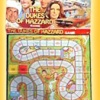

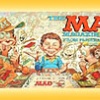

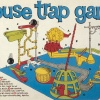
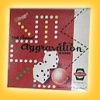
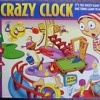


Do You Remember Sorry! (Board Game)?
Do You Remember Sorry! (Board Game)?